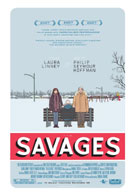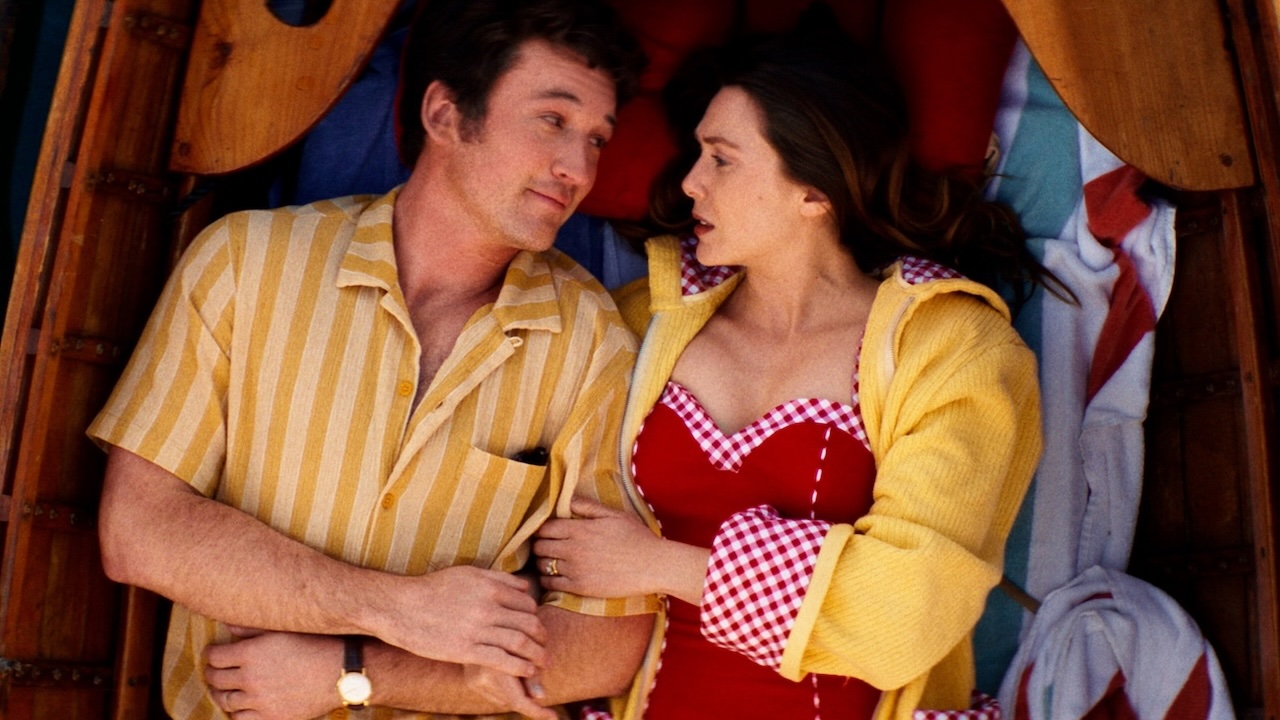Growing up is hard to do. We’re told that in every kind of movie, from loss-of-childhood dramas like Bridge to Terabithia to comedies about overgrown kids like Knocked Up or, hell, even Adam Sandler’s oeuvre. Rarely, though, do we see it the way Tamara Jenkins tells it in The Savages, a wry and mordantly funny drama about two selfish, closed-off siblings forced to make the ultimate grown-up choice when their elderly father develops dementia. The challenges facing Wendy (Laura Linney) and Jon Savage (Philip Seymour Hoffman) are common for millions of Americans, and it is to Jenkins’ credit that she is not only the first filmmaker to truly address it, but to do it in such a smart, empathetic way.
Lenny Savage (Philip Bosco) was a less-than-stellar single parent when his wife left the family, and boy do his adult children resent him for it. Wendy spends her days temping in Manhattan high-rises while working on a “subversive, semi-autobiographical” play, while Jon teaches Bertolt Brecht at a Buffalo college and takes the playwright’s message of alienation a bit too much to heart. Each is at a loss when their father’s live-in girlfriend Doris dies, which leaves the ailing Lenny, thanks to specious legal issues, homeless. Wendy and Jon travel to the retirement community of Sun City, Ariz. and brace themselves to see their estranged father, brittle and incontinent in the hospital bed.
Wendy, who still dresses like a teenager and carries on a dead-end relationship with a married man, must step awkwardly into the mothering role when Jon leaves early to seek out a retirement home in Buffalo. Carrying Lenny’s belongings onto the plane, helping him to the bathroom, she is bewildered and resentful the way a teenage girl might be, recognizing her duty while never quite accepting it. Jon isn’t much better: he wants to get Lenny in a home and settled as quickly as possible, so he can return to his solitary, academic life in his rambling house.
Wendy and Jon are played by Laura Linney and Philip Seymour Hoffman, so it’s a given that their characters are fully realized, alive in the way people on the screen so rarely get to be. Credit is due to Jenkins, though, who makes a film about New York intellectuals that bears no comparison to Noah Baumbach’s work. Wendy and Jon are not particularly damaged or neurotic; they don’t say very witty things, and may not even be all that talented. But Jenkins doesn’t go the other direction either; she doesn’t focus on the horrors they faced in childhood. Wendy and Jon may have more reason to resent taking care of their elderly father than the rest of us, but those reasons don’t matter. Their lot is that of millions of Americans with aging parents, navigating a culture that won’t venerate its elders but won’t shove them off on ice floes either. At most points in the film it’s not clear which of those solutions the Savage children would prefer.
There are no big tragedies in The Savages, no tense string music or big crying scenes. The acting is so subtle as to almost go unnoticed, though Linney, Bosco and Hoffman all inhabit their roles with unbelievable grace. The drama and the heartbreak of The Savages is the everyday kind, what can happen in a low-rent Buffalo nursing home or in a middling college. It’s the clarity with which Jenkins sees it that makes the film extraordinary, her willingness to be hard on her characters without letting the possibility of happiness elude them. A dark comedy with brittle characters that ends on a note of hope, The Savages is a smart, heartbreaking miracle.
Your Daily Blend of Entertainment News
Staff Writer at CinemaBlend


